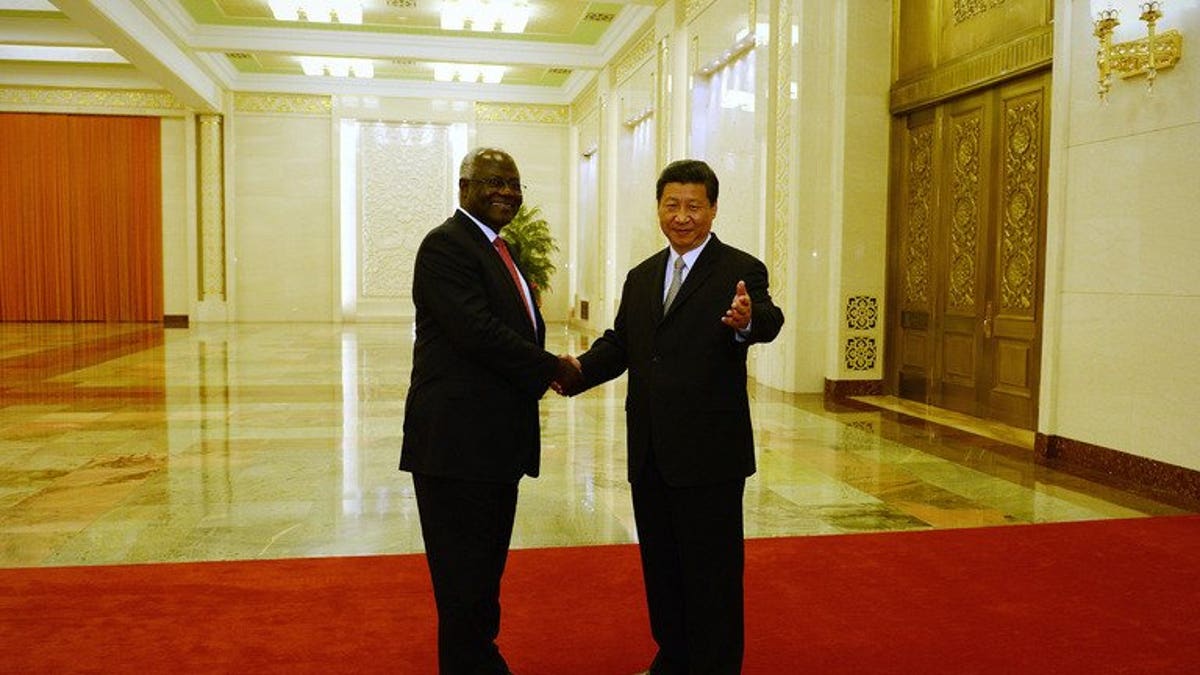
Sierra Leonean President Ernest Bai Koroma (L) meets with Chinese President Xi Jinping (R) at the Great Hall of the People in Beijing on June 26, 2013. Koroma said on Friday that he had signed deals for a new international airport, a railway and raft of other huge construction projects totalling $8 billion during a recent visit to China. (Pool/AFP/File)
FREETOWN (AFP) – Sierra Leone's President Ernest Koroma said on Friday that he had signed deals for a new international airport, a railway and raft of other huge construction projects totalling $8 billion during a recent visit to China.
Koroma, who returned from the week-long trip on Wednesday, said the business included a $1.7 billion deal with the Kingho Energy Group to build a port, mine, power plant and 250-kilometre (155-mile) railway.
He said he had also finalised a $300 million deal with the Chinese Railway International Company to build a new international airport 60 kilometres (40 miles) from the capital Freetown.
Sierra Leone's only international airport is based in Lungi, eight miles across a river to the north of downtown Freetown, a former British airbase during the first and second world wars which became a commercial airport.
Visitors have to choose between a four hour road journey to the capital, a crossing in an aged ferry or a faster water taxi. Helicopter transfers stopped in 2011, four years after 22 people, including the Togolese sports minister, died as their chopper crashed and burst into flames.
"I am happy to say that the Chinese have made a very serious commitment to support us in our development programmes," said Koroma, who met Chinese President Xi Jinping during the visit.
"We committed both countries to increasing cooperation and mutual support in meeting the common aspirations of peace, development and reform of the United Nations and Sierra Leone's support for the 'One China' policy," he added.
Sierra Leone remains one of the world's poorest countries after a brutal 11-year civil war which ended in 2002, but its mineral riches -- which include diamond, gold, bauxite, titanium ore and magnetite iron-ore -- have attracted massive investments.
The railway from the northern mining district of Tonkolili to the southern coastal town of Sulima will be the second in Sierra Leone funded by China.
Iron ore miner African Minerals owns a 120-km line built by another Chinese firm which transports raw ore to a specially constructed port in the north of the country for export.
